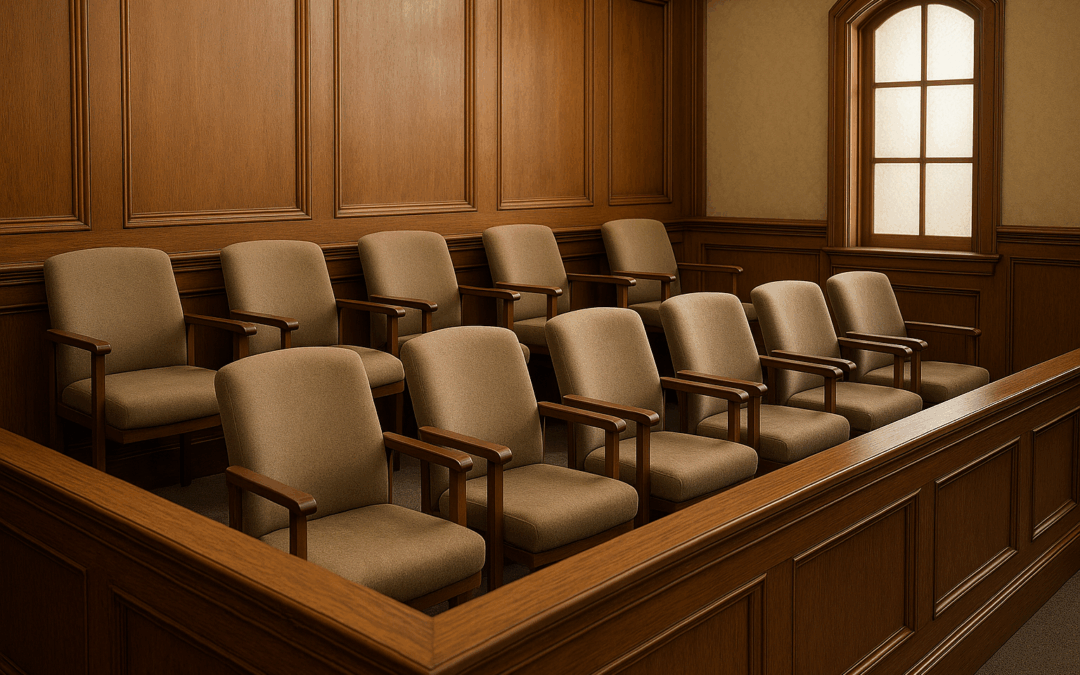Jury duty is one of the few obligations placed on citizens in a democracy. Apart from paying our taxes and voting in elections, individual citizens are not regularly called up to actively engage in the democratic process. Jury duty is important because it is a cornerstone of a fair and democratic legal system. It is central to the democratic belief that if a person is to be tried for offences committed against the community, it should be representatives of the community who decide guilt.
In most trials, twelve individuals are picked at random to sit on a jury. They bring with them a variety of backgrounds, skill sets, world views and experiences. Unlike Judges, they are usually unfamiliar with the legal system and so come to the trial to judge the facts and evidence, rather than the law. There is a general belief that, on average, juries make the right decisions. Where there is a concern that they haven’t, or the trial was impugned in some way, the Court of Appeal exists to review the matter and have the final say on whether convictions are safe or not.
However, if you have been called up for jury duty, you may be wondering why is it important. Below are a few reasons why jury duty remains one of the most important roles that you can play in our democracy.
1. It Protects the Right to a Fair Trial
One of the most fundamental rights in a democracy is the right to be judged by a jury of your peers—not just by the government or a single judge. Jury duty ensures that ordinary citizens have a direct role in determining guilt or innocence in criminal cases, and liability in civil cases. It is a safe guard implemented to avoid criminal justice being used as a tool of dictatorship. In other parts of the world, verdicts are decided by judges. However, judges are Government employees and, if they have attained the role of judge, are usually representative of an elite or privileged class. Where the guilt of a person is decided by a representative of the Government, there are real risks that the verdict may be compromised by the Judge’s own personal views or alliances. They are also placed in a position of conflict, where the Government is both the Judge’s employer and also the prosecution. Having individual citizens deciding the outcome of a trial protects the accused’s right to a trial that is fair and not influenced by politics.
That said, even as an individual ordinary citizen, it is important that you come to the case with a clear and objective mind. This can be particularly difficult where the accused is charged with a serious crime or where the nature of the crime is particularly heinous. In every criminal case, the judge will warn the jurors that they cannot reason with emotion, prejudice or sympathy. They have to decide the case on the evidence, regardless of their own personal feelings. However, if you are called to jury duty and you find the allegations too difficult for you (particularly if you or someone you love has been the victim of a similar offence) you must bring the matter to the judge’s attention and seek to be excused.
Remember that it is your obligation to conduct yourself as a juror in the same manner as you would want a juror to conduct themselves if you were the accused person. That is, put all feelings of emotion, sympathy and prejudice aside and consider the evidence as it is presented.
2. It Keeps the Justice System Grounded in Community Values
Juries bring common sense, community standards, and diverse life experiences into the courtroom. This helps ensure that laws are applied fairly and in a way that reflects the values of society—not just legal theory or precedent. Court rooms can be intimidating. However, juries bring to the courtroom an invaluable skill set. Unlike lawyers and judges who are involved in criminal cases on a daily basis, the jury come to the court room unblemished by such experience. Every juror brings their own education, upbringing, common sense and intuition to the task. The collection of these attributes across the twelve members of the jury are invaluable when it comes to the jury’s role as the judges of the facts.
3. Jury Duty Acts as a Check on Government Power
A jury trial prevents any single authority—judge, prosecutor, or politician—from having absolute power over legal outcomes. Citizens sitting on a jury act as a safeguard against misuse of legal authority. This is perhaps the most important aspect of the jury’s role. As is apparent on an almost daily basis, the issue of law and order is an important community issue and is regularly politicised during election campaigns. In non-democratic jurisdictions around the world, dictators will regularly use the criminal justice system to persecute their enemies. In Australia, juries protect the sanctity of the criminal trial by ensuring that they are the gate keepers against government interference and government power.
4. Jury Duty Gives Citizens a Voice in Justice
By participating in jury service, you’re not just observing the justice system—you’re part of it. It’s one of the few ways everyday people can actively shape how justice is delivered.
5. It Strengthens Democracy
Serving on a jury is a civic duty, just like voting. It’s one of the responsibilities that keeps the justice system functioning properly. Without juries, the burden of legal decisions would fall entirely on judges, reducing transparency and public involvement.
In Short:
Jury duty is important because it ensures fairness, accountability, and public trust in the legal system. It’s not just a duty—it’s a critical way we all help uphold justice.
If you ever find yourself needing guidance about your role in the legal process, or facing charges where a jury may decide your future, our experienced team of criminal lawyers is here to provide clear advice and strong representation.


